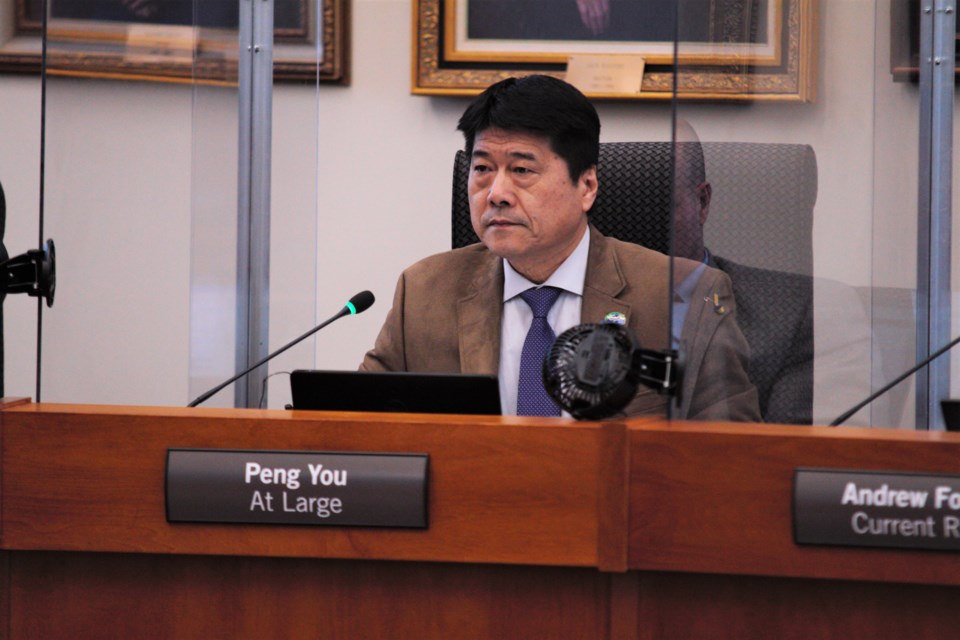THUNDER BAY – Thunder Bay's city council has heard details of a planned $3.5 million expansion to the city’s archives, designed to buy another 40 years’ worth of space as the Harry Kirk Archives and Records Centre approaches capacity by the end of 2023.
Several councillors probed for alternatives to the proposed addition to the Vickers Street facility on Monday, asking if the city could instead turn to digitization or existing buildings – specifically the current police station on Balmoral Street.
However, a decision is expected to rest in the hands of the next term of council, with the project set for inclusion in the proposed 2023 budget (costs would also spread into 2024, when construction would begin).
Staff have identified the project among the city's top 25 infrastructure priorities and on Monday called it a necessary expenditure.
A staff report found a 4,200 square foot addition would be the cheapest option to add space, costing $4.3 million over 40 years, including operating costs.
Digitizing the estimated 17 million pages of records, which fill several large rooms, would be a painstaking process taking about five years and $38.5 million, largely in staff time, the report estimated.
The documents include tax rolls, property records, agreements, and documentation of city decision-making, dating as far back as the 19th century, and can be accessed by city staff, researchers, and the public.
Paying to store the records in a private facility was estimated to cost $5.9 million over 40 years, and could pose challenges since the city needs to provide immediate access to many documents, said city clerk Krista Power.
Some councillors appeared to find those conclusions hard to swallow.
Mayor Bill Mauro said the report raised questions, but was content for those to be answered during the 2023 budget process.
“There are questions, I think, for the next group to ask,” he said in an interview. “The report spoke about the costs associated with digitization. I saw the number in the report, I was surprised by it, and I didn’t quite understand it. But tonight for me, it wasn’t the night to go down the rabbit hole on the issue.”
Coun. Mark Bentz told staff he hoped there would be a focus on reducing the need for physical space going forward.
“Digitization I think is probably a good move, and hopefully we look to do more of that rather than store boxes in archive space,” he said.
Other councillors asked about specific alternatives.
“Is there an opportunity to possibly use buildings that [are already] in our possession, such as the police station?” asked Coun. Shelby Ch’ng.
Retrofitting the police station had been considered, Power said, but was estimated to “cost at least the same or more in terms of initial capital spend.”
“There could potentially be secondary benefit, if it [eliminated] the existing archive building from our inventory, and there could be some cost avoidance,” she said. “The challenge we have is the [archives] will be full at 2023, and the earliest opportunity we’d have for the police facility… would be 2025.”
Coun. Peng You pressed staff on whether so many paper records were really needed, calling digitization “inevitable,” and asking if savings could be found working with the private sector.
“Is there any possibility to do [this] a different way, like consulting with the general public and businesses, so maybe we can come up with some ideas to save tax dollars?” he asked. “Or this has to be done by the city?”
City manager Norm Gale pointed back to the report’s conclusions.
“Using the private sector in this regard turned out to be more expensive,” he said. “I wouldn’t presume the private sector is always more efficient or less expensive than the public sector.”
The province and other cities continue to store physical copies and invest in new archive buildings, the report noted.
Coun. Brian Hamilton called the expansion “housekeeping” the city had little choice but to pay for, and pointed to “substantial” use of the archives, accessed roughly 150 times a year for public research and 500 times a year by staff.
Staff have also pointed to the archives’ role in providing evidence in the city’s legal victory in the James Street Bridge case against CN Rail, and supporting public history projects.
In a letter of support, the Thunder Bay Museum called the archives “critical to the continuity of good government and a strong community.”
“They are our collective memory that historians, educators, genealogists, lawyers, architects, engineers, planners, and many other professionals rely on to conduct their business,” it read. “It should also be the right of citizens to be able to know and understand the past activities of their governments to hold them accountable and inform future objectives.”
The letter also noted the museum is “very interested” in the potential for outside groups to purchase storage space in the new building, since it would be surplus to the city’s needs for many years.
The facility would include an HVAC system designed to meet temperature and humidity standards, and gas fire suppression systems to avoid water damage.
